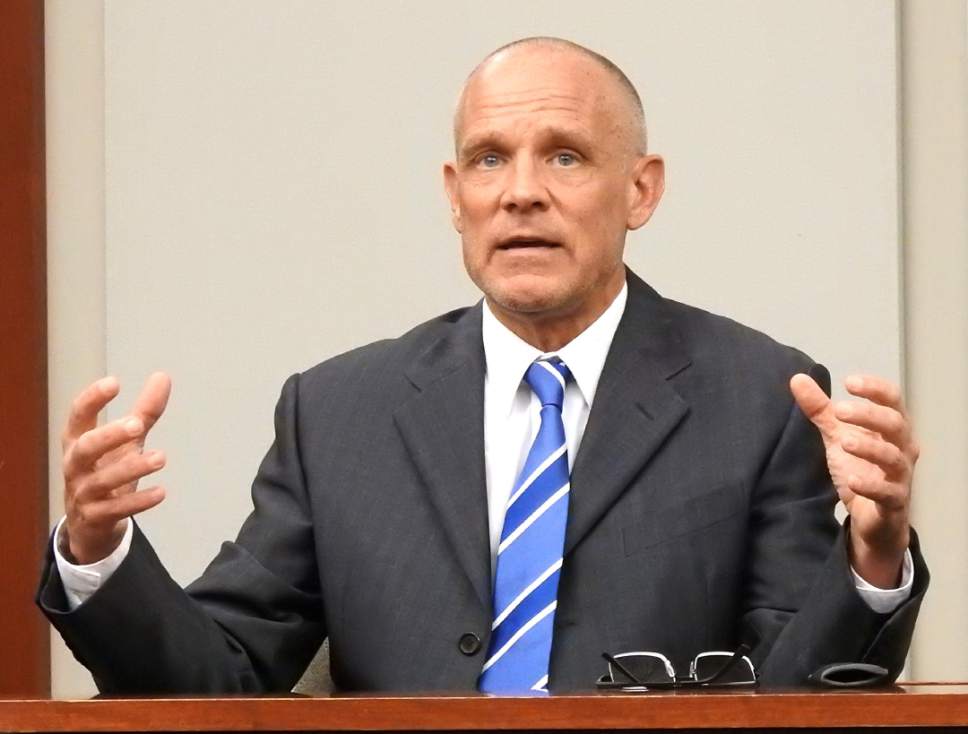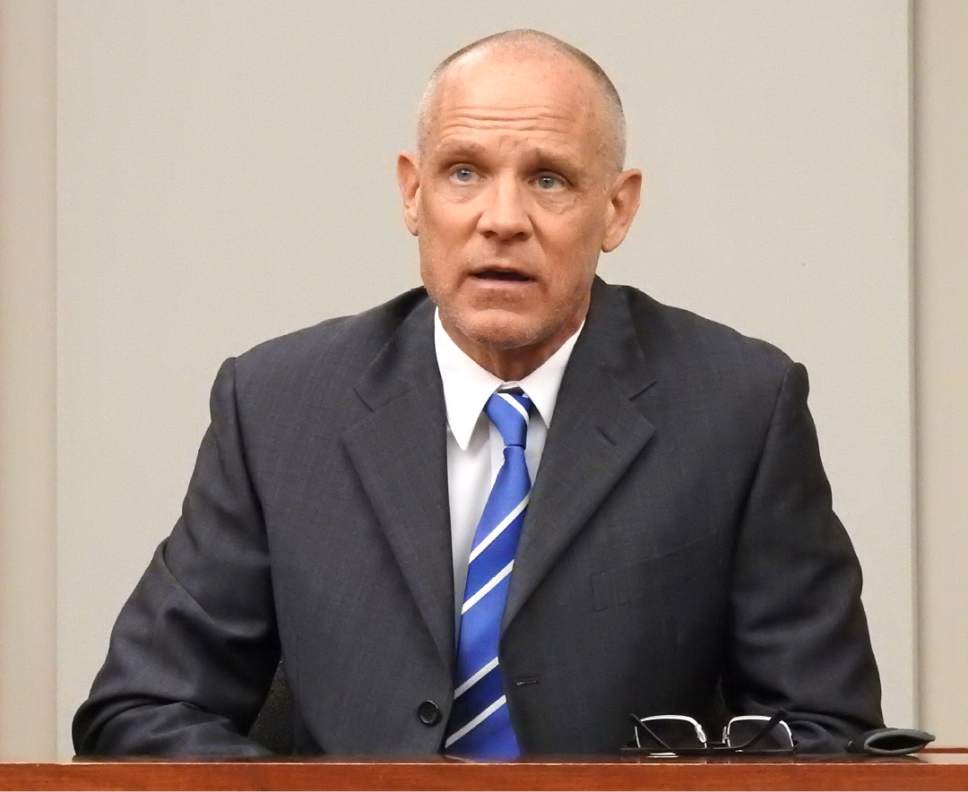This is an archived article that was published on sltrib.com in 2017, and information in the article may be outdated. It is provided only for personal research purposes and may not be reprinted.
A onetime businessman who was embroiled in the political scandal that left two former Utah attorneys general facing criminal charges was released from parole Monday, about 18 months ahead of schedule.
Marc Sessions Jenson's 36-month stint on parole had been set to expire in 2018 but was terminated early for good behavior, documents from the Utah Board of Pardons and Parole show.
Utah law allows those sentenced to three-year parole terms to essentially cut the punishment in half if they perform well over the first 18 months of supervision, board spokesman Greg Johnson said.
Parole officers provide the board with performance updates and can recommend a parolee for early termination, which is what happened in Jenson's case.
Jenson was notified of the termination through a text message sent Monday to his attorney Helen Redd.
"Marc was wrongfully held in the clutches of the state of Utah for 50 months, including 30 months in solitary confinement," Redd said. "Today, he's a free man."
Charged with three felony counts in 2005, Jenson negotiated a plea in abeyance in the case but went to prison in 2011 after a judge found he had failed to pay $4.1 million in restitution owed to two former business partners.
Jenson's legal team challenged the incarceration in 2015, arguing the debt had been settled through other civil lawsuits or settlement agreements that predated the criminal charges.
The board released Jenson and placed him on parole in October 2015, but after a review of the case last year, found he still had not paid restitution.
Monday's decision to end Jenson's parole early does not mean he's paid off his bill, Johnson said, or that the board has reconsidered.
"He still has to comply," Johnson said.
Redd said Jenson has been making monthly $130 payments as ordered by the board but still disputes the state's position.
"It's not a settled matter," said Redd. "We are now going to pursue Marc's legal claims and endeavor to right the wrongs he's suffered."
Jenson's only remaining avenue to challenge the restitution order would be through a state court lawsuit.
Jenson was thrust into the spotlight in 2013 after he told The Salt Lake Tribune that former Attorneys General Mark Shurtleff and John Swallow had squeezed him for money and favors. The allegations of a shakedown helped fuel the investigation of Shurtleff and Swallow that left both facing public corruption-related charges in 2014.
Shurtleff's case was dismissed in 2016. A jury acquitted Swallow in March after a trial that saw Jenson testify for state prosecutors.





